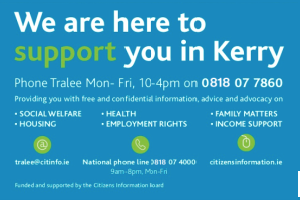 AS Valentine’s Day approaches, An Garda Síochána are asking members of the public to be vigilant of romance fraud as incidences of romance scams rose by 86% in 2021.
AS Valentine’s Day approaches, An Garda Síochána are asking members of the public to be vigilant of romance fraud as incidences of romance scams rose by 86% in 2021.
Romance fraud happens all year round and not just around Valentine’s Day. More than 70% of romance fraud victims are women.
Romance fraudsters may try to get their victims to send them money using the following excuses:
• To cover the cost of travelling to see the victim
• For emergency medical expenses for the scammer or a family member — typically a child
• A business opportunity which would allow them to live together comfortably
Continued below…
There is an ever increasing link between romance fraud and investment fraud. In many cases, scammers will ask victims to invest in a fraudulent scheme or business. Such investments ultimately see the funds transferred to the fraudster through a number of linked accounts.
Members of the public are advised to be vigilant as there are huge risks involved in investing in cryptocurrencies and not to share any money with someone they meet through online websites or apps and to get professional and legal advice before investing.
An Garda Síochána works closely with Europol to disrupt the activities of romance scammers, particularly organised crime gangs that engage in this type of criminality; as well as monitoring dating sites for this activity.
Some case studies include;
• A 41-year-old female was contacted by a male claiming to be a well-known musician, she became romantically involved online and was defrauded of over €26,000.
• A 65-year-old female contacted Gardaí to report that she was at the loss of €35,000, as a result of meeting a male through social media. Throughout their online relationship she was convinced to purchase stream cards and send the codes directly onto her male friend, subsequently she then transferred money to various accounts in Malaysia.
• A 38-year-old male reported that he began engaging online with a female. The female stated she needed money to return home from Mexico. The male sent €3,800 to female via Bitcoin in one transaction.
• A 51-year-old female believed she was in an online relationship with a male, she agreed to transfer €90,000 to him in the belief that it was a loan for his business. She now believes this to be a case of fraud.
An Garda Síochána wishes to provide the following information and advice to members of the public:
What are the Signs?
Romance Fraudsters will:
• Try to move communications away from dating websites. They suggest that you move to instant messaging, text or phone calls instead.
• Ask a lot of personal questions.
• Avoid answering personal questions about themselves. The details that they do tell you seem made up or do not reflect reality. For instance, they may say that they are university educated, but their spelling and grammar is poor.
• Try to establish a bond quickly. For example, they may give you an endearing pet name e.g. baby, darling, etc.
• Ask for financial help. They may tell you about money problems in the hope that you will offer to help.
• Ask you to invest in a fraudulent scheme or business.
• Never meet you in person. They will present obstacles and may go as far as making arrangements and cancelling them at the last minute. They may promise to want to see you but offer excuses which delay this, such as financial troubles.
What can you do?
• Use trusted dating websites
• Do not share personal details
• Do not send or receive money
• Think twice before using your webcam
• Trust your instincts
For further advice or information or if you believe that you are a victim of a romance scam, or think your identity or personal information has been compromised, please contact any Garda Station and report the crime.













